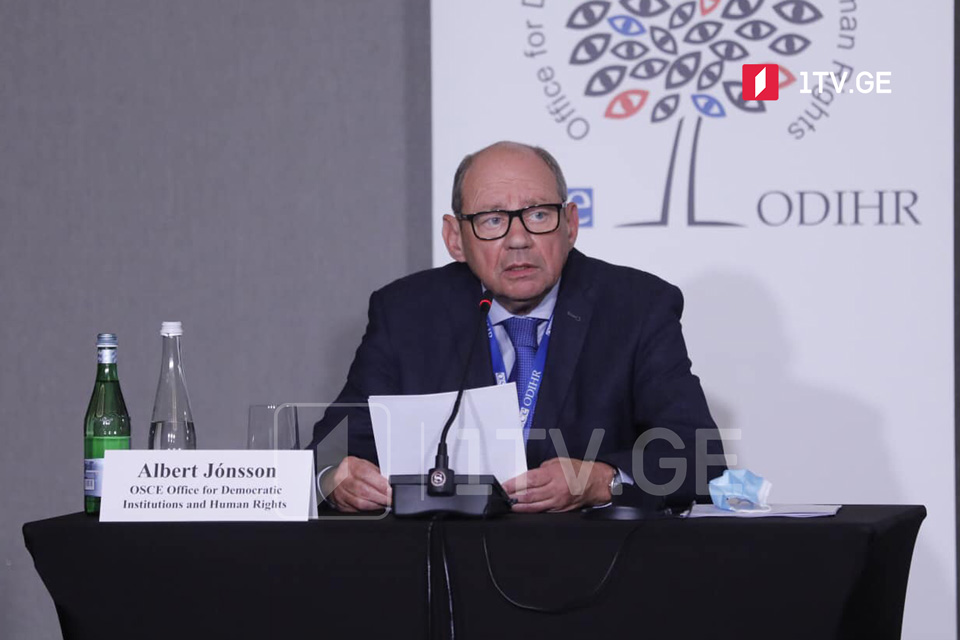Albert Jónsson, Head of the ODIHR Election Observation Mission said, “public television stations allotted a comparable amount of largely neutral coverage to the main contestants, both public channels provided coverage of the government, in many cases, without distinguishing between the institutional and campaign activities.”
Jónsson made remarks at a press conference, aiming to present findings of international election observers following the local elections in Georgia.
Jónsson noted that the public broadcaster allocated air time to the parties. “Public broadcaster also had a debate with participation from all the parties. We also point out that the public broadcaster is covering the government quite extensively.”
“The coverage includes the government activities without making distinctions between the institutional and campaign activities. The public broadcaster has a special position compared to the private stations and we could see that in the election campaign, the public broadcaster offers more opportunities, more equal bases to the parties and that was seemingly in the coverages, monitored by all media monitoring teams, allocated, on a fair basis, free air time and also as I mentioned, held a debate where all the parties took part, one guest decided to leave, as you remember. So this distinguishes the public broadcaster from the others,” Albert Jónsson underscored.
Head of the ODIHR Election Observation Mission stressed that the Georgian media environment is “strongly polarized,” reflecting the deep divisions between the ruling party and the opposition.
“The results of the media monitoring, undertaken by the election observation mission, show that the coverage was highly selective and provided voters with a limited presentation of political alternatives. National television channels covered the elections extensively but they mostly focused on three parties: Georgian Dream, UNM, For Georgia, and the reporting was essentially devoted to accusations between three of them, providing very limited analytical or investigative coverage. The coverages provided by the main private tv channels mirrored their political alignment,” he stated.
